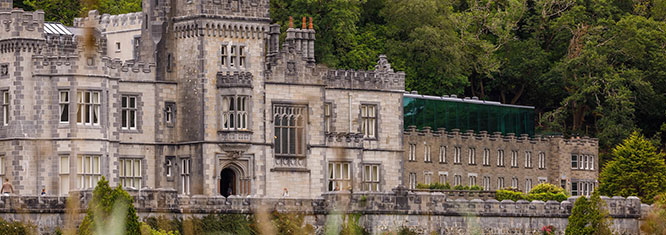How Christian anthropology can inform theological vision for education
Abstract
(a) Having served as a governor of a Church of Ireland secondary school for over twenty years, I am painfully aware of the absence of an explicit shared theological vision to underpin the Church’s educational ministry. In my role I have encountered disagreement, and even opposition, to attempts to make the Christian ethos more evident within the school. The lack of a theological vision spelling out the raison d’être of the Church of Ireland’s involvement in education makes governance oversight of ethos more challenging.
(b) What I wish to explore is how Christian anthropology might provide a foundation for such a theological vision. I am interested especially in the Christian doctrine of creation and, in particular, the understanding of life as gift; of worth as a given.
(c) I intend to pursue literature-based research. What particularly interests me is the work of the fifteenth century German mystical theologian/philosopher, Nicholas of Cusa and his ideas around our being enfolded in the love of God the Creator, on whom we depend, whilst, at the same time, being ourselves an unfolding of God in time and space.
(d) My own faith is grounded most strongly in God as Father. It seems to me that there can sometimes be so much focus on promoting a ‘personal relationship with Jesus Christ’ as to obscure the fact that Jesus points the way to the Father. To turn focus to God as Father, creator of heaven and earth, who perpetually holds us in being, provides, I believe, a firm footing for young people today as they face questions of ultimate meaning and truth. In Nicholas of Cusa’s writings on the Incarnation, he stresses that this unique unfolding of the absolute God in a human being is at the same time to reveal the God enfolding Jesus Christ. This says it perfectly!
How Christian anthropology can inform theological vision for education
(a) Having served as a governor of a Church of Ireland secondary school for over twenty years, I am painfully aware of the absence of an explicit shared theological vision to underpin the Church’s educational ministry. In my role I have encountered disagreement, and even opposition, to attempts to make the Christian ethos more evident within the school. The lack of a theological vision spelling out the raison d’être of the Church of Ireland’s involvement in education makes governance oversight of ethos more challenging.
(b) What I wish to explore is how Christian anthropology might provide a foundation for such a theological vision. I am interested especially in the Christian doctrine of creation and, in particular, the understanding of life as gift; of worth as a given.
(c) I intend to pursue literature-based research. What particularly interests me is the work of the fifteenth century German mystical theologian/philosopher, Nicholas of Cusa and his ideas around our being enfolded in the love of God the Creator, on whom we depend, whilst, at the same time, being ourselves an unfolding of God in time and space.
(d) My own faith is grounded most strongly in God as Father. It seems to me that there can sometimes be so much focus on promoting a ‘personal relationship with Jesus Christ’ as to obscure the fact that Jesus points the way to the Father. To turn focus to God as Father, creator of heaven and earth, who perpetually holds us in being, provides, I believe, a firm footing for young people today as they face questions of ultimate meaning and truth. In Nicholas of Cusa’s writings on the Incarnation, he stresses that this unique unfolding of the absolute God in a human being is at the same time to reveal the God enfolding Jesus Christ. This says it perfectly!


